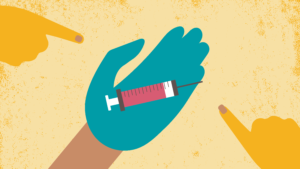Archive:
Community-Based Access to Injectable Contraceptives (CBA2I) Toolkit
You have reached this page either from the main Toolkits Archive page or because you followed a link to a page or resource that used to be in a K4Health Toolkit. The Toolkits platform has been retired.
 The Community-Based Access to Injectable Contraceptives Toolkit collected resources for strengthening the capacity of agencies and organizations to plan, implement, evaluate, promote, and scale up community-based access to injectables (CBA2I) programs and to advocate for changes to national policy and service delivery guidelines. It was originally created as a collaboration between USAID and FHI 360.
The Community-Based Access to Injectable Contraceptives Toolkit collected resources for strengthening the capacity of agencies and organizations to plan, implement, evaluate, promote, and scale up community-based access to injectables (CBA2I) programs and to advocate for changes to national policy and service delivery guidelines. It was originally created as a collaboration between USAID and FHI 360.
Toolkit Alternatives
- Read “Delivering Injectable Contraception in the Community,” Chapter 4 of Family Planning: A Global Handbook for Providers
- View/download the High Impact Practices Brief “Community Health Workers: Bringing family planning services to where people live and work“
- Explore 20 Essential Resources: Self-Care for Family Planning
- Visit this FP insight collection on self-care in Asia
- Visit past captures of the CBA2I Toolkit on the Internet Archive’s Wayback Machine
If you urgently require a specific resource from a retired Toolkit, contact toolkits-archive@knowledgesuccess.org.





